Qingming 1 - Happy Easter & Sweepin Tombs
Saturday, April 03, 2010
 Hanzhong, Shaanxi, China
Hanzhong, Shaanxi, China
Hey Hey and Big Happy Easter G'Day toya,
A drizzling rain falls like tears on the Mourning Day;
The mourner's heart is breaking on his way.
Where can a wine house be found to drown his sadness?
A cowherd points to Xing Hua village in the distance.
The above is from a famous poem about the Qingming Festival which is enthusiastically being celebrating this long weekend here in China. For those who don’t know what the Qingming Festival is, it’s all the ancestors ie: keeping them happy along with keeping their tombs clean. Therefore in English it is known as the 'Tomb Sweeping Festival’ and along with several other ancient festivals it has recently made a public holiday to help keep it alive and celebrated by generations to come.
As you sit at home celebrating Easter with chocolates and beer the Chinese have been busy travelling to their home village, gathering as a family and at dawn heading out into the fields and hills to spend time with their dead ancestors. Later in the afternoon swarms of people can then be found gathered at local village temples eating, doing the worship thing and generally having a great time being together.
Some are dressed in vibrant coloured silk minority costumes and others clad from head to foot with face paint and traditional clothing to play their part onstage during the weekend’s performances to help the past continue into the future. This, along with life at present has been set upon a stunning stage provided by nature as the world around us has become more like living in a colourful painting rather than a reality.
Most of the fields have been transformed a brilliant golden colour and filled with the sweet smells of rape seed and the sound busy buzzing of bees. Amongst the golden fields can be found several lush green rice fields and other fields of assorted colours. Most of all though are the blossom trees that have recently woken after their long sleep bringing forth huge multi-coloured spring smiles.
I was supposed to go to Xian for the weekend but Friday found me unable to secure a ticket there both that afternoon and most of Saturday so I decided to put on my Tomb Boots, become all Lara Croft and spend the weekend visiting several famous tombs located in the Hanzhong area. The weekend began with the arrival of Mickey (Brad’s Squeeze) and when they were in KFC they found her friend Gao Ming (a very vibrant lass) about to set up house for the weekend at her KFC table as she was unable to get a ticket back to Xian or find a hotel room.
We decided the best thing to do was to all head out for a delicious Hotpot Dinner.
As for the rest of the weekend, I’ve had to break the Qingming Festival weekend into three blogs and for those not interested in Chinese history simply scroll to the bottom of each page to check out the photos as there are some nice shots in there. Both tombs I visited were those of very Historically Famous Dudes, one being the first Chinese guy to cross the western deserts making it to the east therefore bringing the Silk Road into being thus allowing communication and trade between the east and west to flourish and the other a Military Dude who was so dedicated to his work that he died of exhaustion on the battle field which seems rather selfish as if you are battle isn’t it fairer to allow one of your opponents take your life.
The Qingming ‘Tomb Sweeping’ Festival
The Qingming (Pure Brightness) Festival is one of the twenty four seasonal division points in China, falling on April 4-6 each year. After the festival, the temperature rises and rainfall increases making it the high time for spring plowing and sowing.
The festival is not only a seasonal point to guide farm work.
It is more a festival of commemoration.
The concept of filial piety or obedience to one's elderly or ancestors is a very important concept in the Chinese culture. Traditionally, the Chinese believed that the spirits of deceased ancestors will look after the family even when they are gone. Hence the offering of food and spirit money could keep them happy in the spiritual world and in turn, the living family will continue to prosper through good harvests and more children from the ancestor's blessing. This has always been and still is a very important cultural concept for the Chinese and in most homes can be found an ancestor's altar or photo to which offerings and incense given.
Once a year during Qingming, the Chinese visit their family graves to tend to any underbrush and weeds that has grown out of hand around the grave. Weeds are pulled, dirt swept away and joss sticks, food and paper money is offered to the departed. This year's Qing Ming or Tomb Sweeping day falls on April 6. Generally, a week before and two weeks after Qing Ming is acceptable to honor the ancestors at temples, grave sites or crematoriums.
This is also practical as they all become packed during Qing Ming.
Qingming itself was created by the Tang Emperor Xuanzong in 732.
It is said that because the wealthy held too many expensive, elaborate ancestor-worshipping ceremonies, in a needed effort to lower this expense, Emperor Xuanzong declared that respects could be formally paid at ancestor's graves only on Qingming.
Burial Traditions
In the early days, before the concept of cremation, dead Chinese were always buried as they believe that to be buried at one's hometown will mean that the spirit will rest well and in turn bless their surviving children and their families.
Today, due to globalization and the trend of cremation, being buried especially in one's hometown, is no longer practical. Hence, in place, on the burial tablet or the ash holder, the hometown and birthplace is always inscribed in addition to the deceased name and date of birth and death, so that the spirit can find their way home.
Honoring Ancestors
Honoring ancestors begins with proper positioning of a gravesite and coffin. Most families believe in the concept of "feng shui", or geomancy and as far as possible, will choose an area that faces south, with groves of pine trees to create the best flow of cosmic energy required to keep ancestors happy.
A "happy ancestor" will in turn, bless the living family!
Family members will visit the gravesite of their ancestors at least once a year to tend to the tombs, especially on Qing Ming. The Chinese will cook food for their ancestors which usually consists of chicken, eggs, or other dishes a deceased ancestor was fond of. Accompanied by rice, the dishes and eating utensils are carefully arranged according to a certain position so as to bring good luck. Also incense or paper offerings are burnt and offered to the ancestors as well. These are known as "hell money" or "paper money" in the belief that the dead needs to spend money in their afterlife as well.
Family Traditions
Because many graves or crematoriums are located in remote locations, and sometimes a family has more than one grave to visit, a trip to clean and pray at ancestral graves during Qing Ming can be a trip at the crack of dawn and to end only late at last light and on most occasions this is a entire family trip, whereby parents will share the value of Qing Ming with their young children and impressing onto them the Chinese tradition of honoring their ancestors.
The Qingming Festival is also a time to plant trees, for the survival rate of saplings is high and trees grow fast later. In the past, the Qingming Festival was called "Arbor Day". But since 1979, "Arbor Day" was settled as March 12 according to the Gregorian calendar. It is a traditional Chinese festival on the 104th day after the winter solstice (or the 15th day from the Spring Equinox), usually occurring around April 5 on the Gregorian calendar. Every leap year, Qing Ming is on April 4. Astronomically, it is also a solar term. In solar terms, the Qingming festival is on the 1st day of the 5th solar term, which is also named Qingming.
…and a little extra for you…oh la la!
Overseas Chinese communities in Southeast Asian nations such as Singapore and Malaysia also practice this custom. However the practice is in decline in these regions. To mark the day, Chinese traditionally tend the graves of their departed loved ones and often burn paper money, model houses, cars, mobile phones and other goods as offerings to honor them and keep them comfortable in the afterlife. Sexy lingerie sets have reportedly become a hit among Malaysia's ethnic Chinese, who buy them to offer to their dead relatives on the Qingming Festival.
Beers N Noodles toya…..shane
___________________________________________________________
The soundtrack to this entry was World Hemispheres.
The album was ‘Fresh Global Sounds’
____________________________________________________________
Other Entries

 Hanzhong, Shaanxi, China
Hanzhong, Shaanxi, China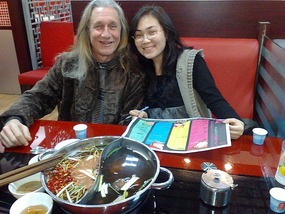
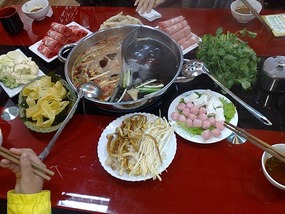
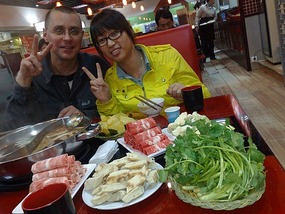
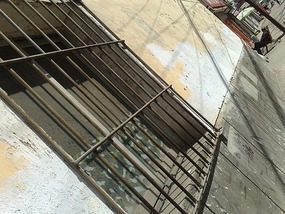
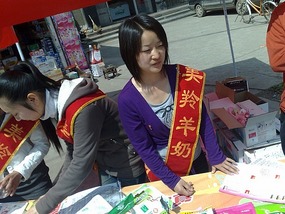
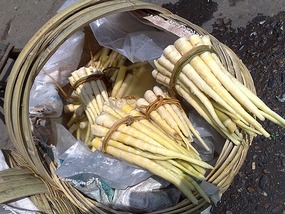
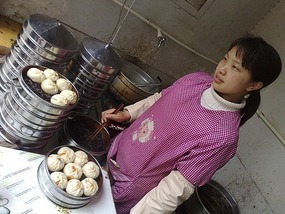
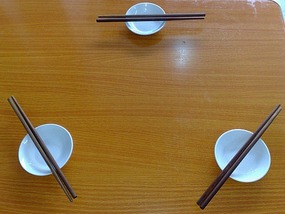
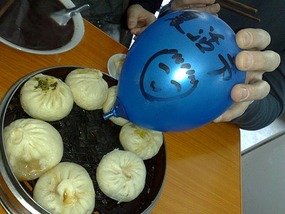

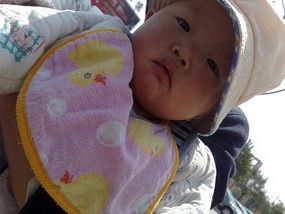
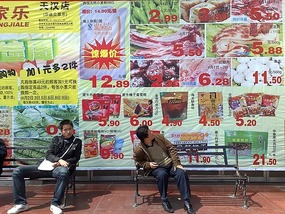
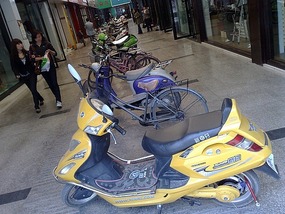
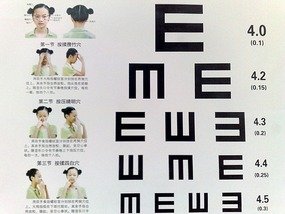
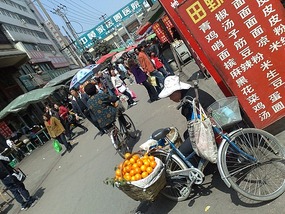
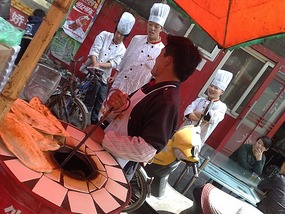
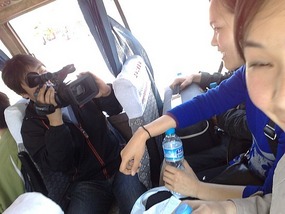
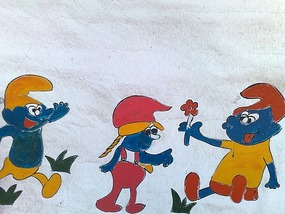
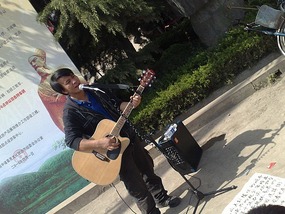
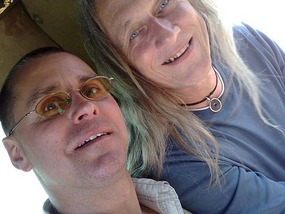
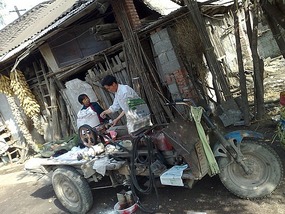
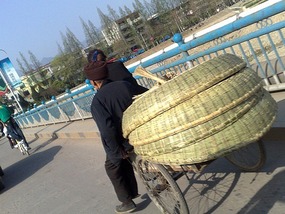
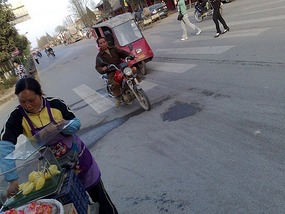
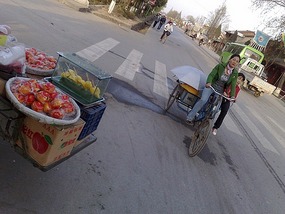
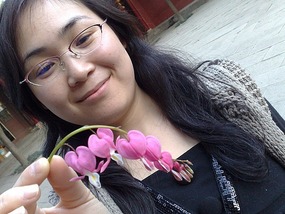
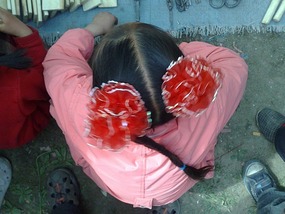
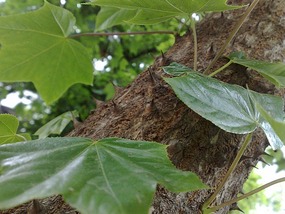
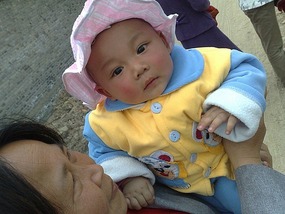
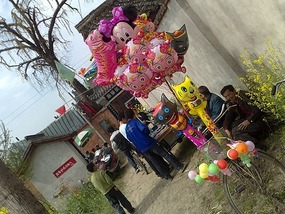
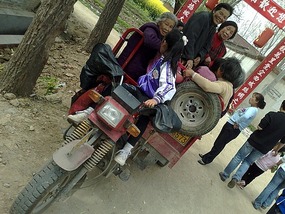

2025-05-22